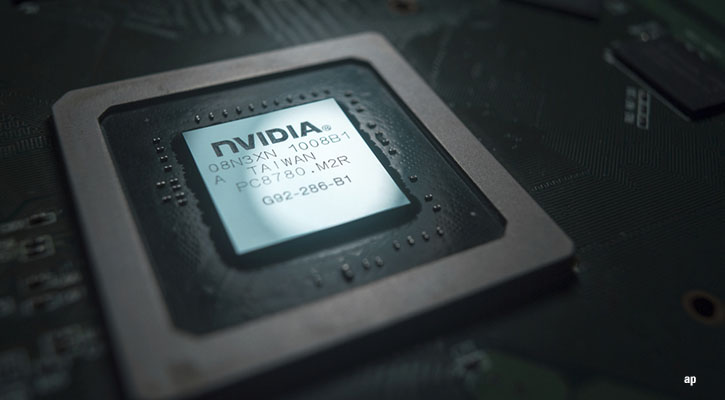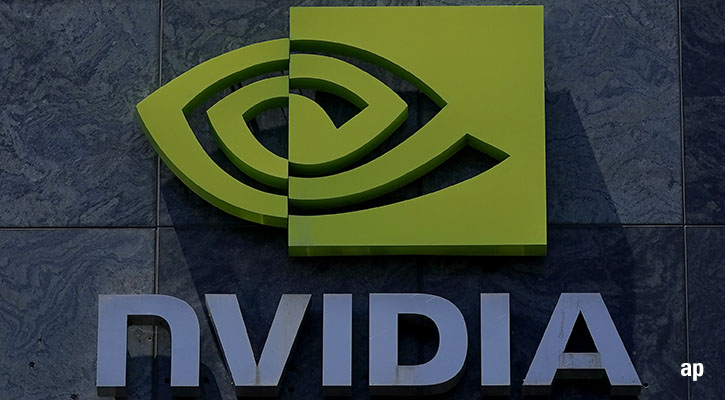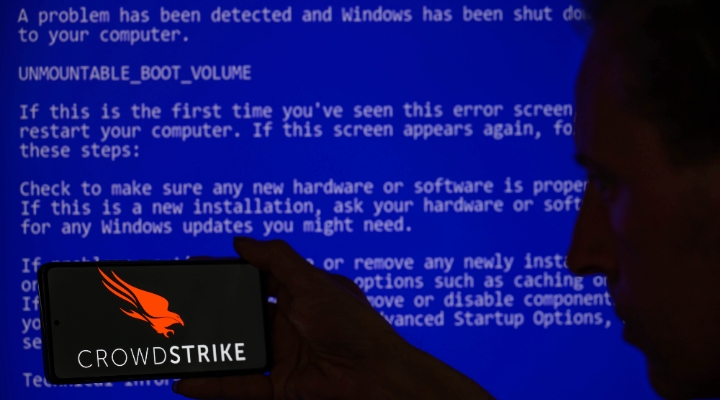
One of the best-performing technology funds in recent years has a major contrarian streak when it comes the market’s current biggest star: Nvidia (NVDA) stock.
Since June 2016, Fidelity Global Technology, the largest tech stock fund in Europe, has owned zero shares of Nvidia as the stock has surged on the back of artificial intelligence-fueled demand for semiconductor chips. Still, the €19 billion (£16.2 billion) fund, under lead manager Hyun Ho Sohn, has landed in the top decile among all technology funds for its performance over the past decade.
Over the last 10 years, the fund has returned 21.4% per year compared with 17.3% per year for the category, 20.9% per year for the Morningstar Global Technology index and 15% per year for the Morningstar US Market index.
Even as Nvidia stock has extended its rally following fourth quarter earnings, Sohn is staying on the sidelines. “There was nothing in Nvidia's results to change my view”, he said in commentary provided to Morningstar on February 27. He sees the current environment as just the first stage of a long-term AI infrastructure build out, and that in the meantime, there are other, more attractively-valued stocks when it comes to investing in the future of AI technologies.
Performance Hit From Avoiding Nvidia Stock
It’s a notable call for any technology fund to not own any stock of a dominant player in the semiconductor industry. The average tech stock fund holds nearly 13% of its portfolio in Nvidia stock. (The category includes funds focused on semiconductor stocks.) Fidelity Global Technology’s benchmark, the MSCI ACWI Information Technology has a 9.6% weighting in Nvidia stock.
But the lack of Nvidia stock especially stands out given the massive run in its share price. Nvidia stock is up 60% so far in 2024, 240% over the last four years and an average of 67% per year for the last 10 years.
The zero weighting in Nvidia has contributed to a slump in the fund’s performance over the year. The fund’s performance ranks at the 53% percentile of the category – which has 335 funds - for the past year.
Over the past twelve months Fidelity Global Technology has returned 31%, compared with a close to 46% gain for the Morningstar Global Technology index. Still, those returns put the fund ahead of the competition. The average tech fund has gained +29.1% and the broader market index has risen close to 25%.
Why Fidelity Global Technology Doesn’t Own Nvidia
While Fidelity Global Technology did own Nvidia shares a brief period of time between July 2015 and June 2016, that was the exception.
In a November commentary on the strategy, lead manager Hyun Ho Sohn, explained: “The fund does not own Nvidia, which is a good company run by solid management. However, the company itself is in the technology infrastructure and can be erratic and cyclical - which I think the market underestimates.”
While he avoids Nvidia, the manager considers the theme of artificial intelligence to be a valid one: "I think AI is an interesting technology and has great long-term potential. Many companies are investing in setting up AI infrastructure and, as a result, we're seeing increased demand in areas such as graphics processing units and AI networks."
That said, Ho Sohn, who has been managing this strategy since March 2013, believes that the market is getting a little carried away with this technology and its promises.
"In my opinion, AI adoption may turn out to be slower than expected. People often compare generative AI to the iPhone movement, and while the latter was an innovative consumer product that saw very rapid adoption, generative AI is a business application - one that will need to be considered alongside regulation, compliance, security and data governance. That's why, despite all the hype around AI, we haven't seen many companies able to successfully monetize AI. So there could be a period of digestion with this technology, and that's one of the risk factors I'm keeping an eye on."
After Nvidia Results
Following Nvidia stellar results, Ho Sohn was still unimpressed.
"Nvidia has delivered very strong numbers three quarters in a row, led by data centre GPU sales. While this quarter's numbers are respectable, they are not quite the blow-out numbers seen in previous quarters - in fact, the magnitude of revenue beats is actually lower than in the last two quarters,” he wrote this week.
“Although still above consensus, Nvidia's latest results tell us that it is getting tougher for the company to continue beating expectations as they are elevating and remind us of the law of large numbers - the eventual convergence to a true value”
“It is difficult to predict how big this phase will be because end demand is hard to forecast, and other factors, such as strategic build, peer pressure, and supply chain tightness, create rush orders,” Sohn said.
“Instead of chasing stocks already priced to perfection, I continue to approach the AI theme in a stock-specific manner, looking for underappreciated names”, the fund manager wrote, mentioning companies in the hardware space, IT services/software businesses “tied to AI monetisation” like Elastic or Nutanix.
Key Morningstar Fund Metrics
• Morningstar Medalist Rating: Silver
• Morningstar Rating: 5 Stars
• Sustainability Rating: 3 Globes
• Total Assets: €18 Billion
• Inception Date: 1 September 1999
Which Stocks Explain Its Long-Term Outperformance?
Although it does not own any Nvidia shares, the fund, which holds around a hundred positions at the moment, is a very long-standing shareholder in Apple (bought in 2004) and Alphabet (since 2005). It also holds shares in Microsoft (2017) and Amazon (since 2020), and is a long-standing shareholder in Ericsson (2011) and SAP (2016).
The fund has some exposure to the "Magnificent 7", but these companies accounted for only 15% of total assets at the end of 2023. The Magnificent Seven comprises of Nvidia, Tesla, Meta Platforms, Apple, Amazon, Microsoft, and Alphabet.
In fact, Fidelity Global Technology has also been underweight Microsoft and Apple compared to its benchmark. Not only that, but as of the end of January, the fund didn’t own stock in other semiconductor companies which have been posting big rallies: Advanced Micro Devices, Broadcom and ASML.
Performance attribution analysis for the fund over the last 10 years shows that the main contributors to its performance have been Apple, Microsoft, Alphabet, KLA, a semiconductor equipment supplier, and Samsung Electronics.
The main detractors to Fidelity Global Technology’s performance were Chinese ecommerce giant Alibaba, French payment company Worldline, and other non-US tech companies like ams-OSRAM, Rakuten or Baidu.
An analysis of Morningstar data shows that the bulk of the fund's current positions have been built up in 2020 (14% of the portfolio owned that year) and 2022 (24%), two years marked by episodes of high market volatility in particular for the technology sector.
This fund has been awarded a Morningstar Medalist rating of Silver, a positive mark which owes much to the stability of the management team, the fund's performance and its process, but certainly not to the management fees. At 1.88%, the fund’s ongoing fees are well above the average of all the funds available for sale in Europe, which currently stands at 1.11%.


























